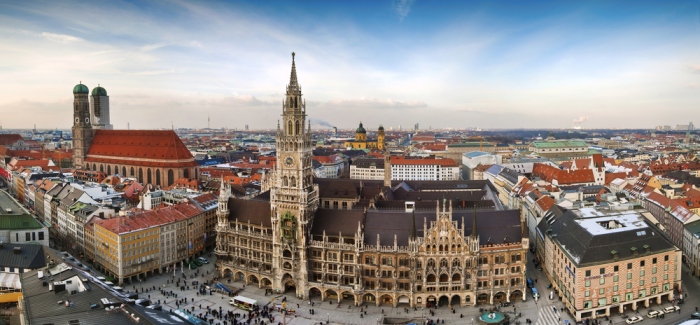Known for its innovation in fields such as automation and engineering, and boasting one of the lowest unemployment rates in Europe, working in Germany is an attractive option for many current or future students. Read on for an overview of the requirements for EU and non-EU students to work in Germany during or after studies.
Working in Germany during your studies
If you’d like to find part-time work to supplement your income while studying in Germany, there are different conditions depending on where you’re from:
Students from the European Union/European Economic Area (EU/EEA)
Students from the EU/EEA (as well as students from Iceland, Lichtenstein, Norway, or Switzerland) have the same entitlement as German students and free access to the German job market. You can work up to 20 hours per week while studying. If you exceed this, you’ll be required to pay into the German social security system, and there could be a negative impact on your studies.
Students from outside the EU/EEA
Non-EU/EEA students are also able to work in Germany alongside their studies, for 120 full days or 240 half days per year. If you take a job as a student assistant or research assistant at the university, this is usually not counted in your limit. However, you must notify the Alien Registration Office if you take up this type of work.
If you take an internship during your semester break, this is regarded as normal work, even if it’s unpaid. This means that every day of your internship is subtracted from your 120-day credit balance. However, mandatory internships which are required for your course do not count towards your limit.
Note that non-EU students are not permitted to work in a self-employed or freelance capacity.
Students in Germany can generally earn up to €450 (~US$480) per month tax-free. If you earn more than this you will receive an income tax number and have automatic tax deductions from your salary. Some employers may withhold income tax despite the low income, but you can reclaim this after submitting your income tax statement. When it comes to finding work, it’s likely to be very useful if you have a good knowledge of the German language and/or have completed an internship during your studies.
If you’re studying a language or a preparatory course (Studienkolleg) the requirements are stricter. You can only work in lecture-free periods and only with the consent of the Federal Employment Agency and the foreigners' authority.
Working in Germany after your studies
If you want to stay in Germany to find work after graduating, it’s a good idea to start planning for this while you’re still a student. It’s highly beneficial to have proficiency in the German language to find work in Germany, as the number of jobs open to you will be very limited without it.
Students from the EU/EEA
As an EU citizen, you have the right to seek work in Germany without the need for a work permit. You will be treated in the same way as German residents in terms of access to the employment market, working conditions and social and tax advantages.
Students from outside the EU/EEA
Students from non-EU countries who wish to work in Germany after graduating can extend their residence permit for up to 18 months to find work relating to their studies. To apply for the extended residence permit, you’ll need:
- Passport
- University degree certificate or official document from your university confirming that you successfully completed your studies
- Document proving you have health insurance
- Proof that you have means of supporting yourself financially
The 18 months commence as soon as you receive your final exam results, so it’s advisable to start looking for employment during your final semester. In these 18 months, you can work as much as you like and take up any kind of employment to support yourself.
As soon as you’ve found a role you’d like to accept, you should apply for a German residence permit or EU Blue Card (similar to the US Green Card). You can remain in Germany while your application is pending. The EU Blue Card may be preferable if you intend to live and work in another EU state. You can ask the foreign residents’ registration office for advice on which permit to apply for and what documents you’ll need. If you decide to apply for the Blue Card, you must have been offered a job that pays at least €49,600 (~US$52,850) a year.
If you’d like to stay in Germany and become a permanent resident, you can apply for a ‘settlement permit’ as early as two years after receiving your permanent residence permit or EU Blue Card.
Seeking work in Germany after returning to your home country
If you return to your home country but want to travel back to Germany at a later date to find work, you can apply for a Jobseeker Visa. This is a six-month visa which entitles you to look for a job related to your degree. You must be able to provide proof that you can support yourself while looking for employment, which is especially important as you are not allowed to work on this visa. When you find a suitable position you can apply for the appropriate residence permit. You should apply for this visa from the nearest German embassy in your home country – find yours here.
For more advice on the requirements for non-EU students to work in Germany, visit the Federal Foreign Office.
Want more content like this? Register for free site membership to get regular updates and your own personal content feed.









